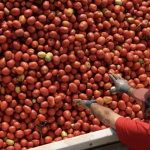The way to get better soil and more food is to let weeds grow
Added one year ago
By Hawke's Bay Future Farming Trust
To improve soil health and boost food production, we need to rethink our approach to gardening. The idea that a well-maintained garden is a tidy one should be replaced by a more organic, biodiversity-rich strategy. Instead of eliminating every weed and using harmful chemicals, we should focus on maximizing plant variety and biomass, which benefits the entire ecosystem.
The key to achieving this is planting a wide variety of species so that bare soil is covered, feeding the ecosystem and building organic matter. For example, mix lettuces with cabbages and radishes. As radishes are harvested, the lettuces take over, followed by larger brassicas like cabbages filling in. Clover can be undersown to support beneficial insects, fix nitrogen, and protect the soil.
This same principle applies to lawns. A manicured lawn is essentially a monoculture, which is not sustainable. In contrast, regenerative farmers blend multiple species of grasses, legumes, and forbs to better nourish both the soil and animals. The concept of "No Mow May," where lawns are left to flower and set seed, is catching on. Allowing the grass to grow taller increases biodiversity, attracts beneficial insects, and provides food for birds, making the ecosystem more resilient.
Traditionally, gardens like the cottage garden embraced this diversity, in contrast to today’s minimalist, geometric gardens. While many are concerned about climate change, loss of biodiversity, and the use of synthetic chemicals pose an even greater threat to the biosphere.
So, what exactly is a weed? It’s time to rethink that definition too. The classic definition of a weed as "a plant growing where it isn’t wanted" is too simplistic. Science now shows that many so-called weeds offer essential ecosystem services, such as supporting pollinators, protecting soil, and stabilising crop yields. Instead of eradicating all non-crop plants, we should focus on managing only those that cause significant harm.
New soil science also reveals that compost and manure aren’t as crucial to soil health as once believed. What really matters are the compounds like sugars, proteins, and fats that plant roots secrete into the soil, which feed a rich diversity of microbes. This means plants themselves, not external amendments, are what drive soil health. A diverse mix of plants is essential for soil vitality, and a bare garden harms this ecosystem more than it helps.
In short, we need to embrace a more biodiverse approach, let our gardens grow wild, and reduce our reliance on pesticides. By doing so, we support both the above- and below-ground ecosystems, improving the environment for everyone.
Join the conversation
Be the first to leave a comment.
Leave a comment
All comments are reviewed before they are published on the website. Your email address will not be published.
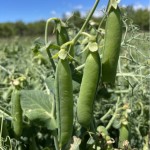
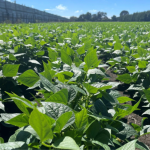
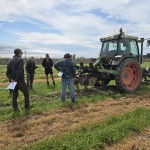
Community Engagement and Knowledge Sharing Strengthen the Carbon Positive Project
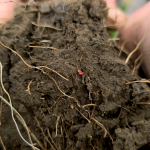
Are We Changing Soil Carbon Yet? Three Years In, the Jury’s Still Out

Farewell to Trustee Phil Schofield – A Foundational Leader of the HBFFCT
